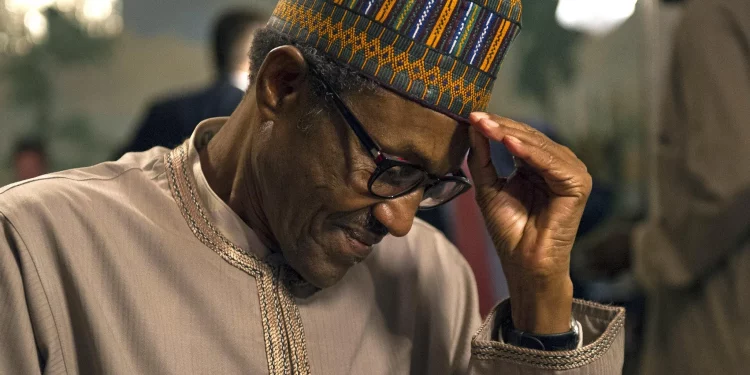A new report has shown how badly Nigeria racks globally regarding the impact of terrorism, which has ravaged the West African nation over the past 10 years, but mostly under the last 7 years of the current administration of President Muhammadu Buhari.
The devastating terrorism report about Nigeria is despite the high budgetary allocations, which seems to be yielding no fruit as the country still ranks as the second most terrorism ravaged country according to the data obtained from Jihad Analytics.
Jihad Analytics is a group with specialty in global and cyber jihad, open-source intelligence and data.
According to the Jihad Analytics report, which covers January to June 2022, Nigeria recorded 305 attacks with Iraq being first with 337 and Syria third with 142 within 6 months.
This report undoubtedly counters the claims by the Nigerian President, Major General Muhammadu Buhari (retd), that his government was winning the counter-terrorism war.
Clariform reports that between 2015 to 2022, Nigeria budgeted a total of N11.18tn for security.
Recall that Clariform had previously been reporting the activities of ISWAP terrorists and bandits in the North-West, North-Central and attacks in South-West.
On July 5, ISWAP claimed responsibility for the attack on the Kuje Medium Security Correctional Centre, Abuja during which hundreds of suspected Boko Haram commanders and other criminals escaped.
It is also believed that ISWAP fighters masterminded the attack on the elite Guards Brigade troops in Abuja, which “decimated” their ranks and many soldiers dead according to the National Security Adviser to the president.
It is on record that Buhari has allocated approximately N11.18tn as security budget since he assumed office on May 29, 2015.
This covers budgetary allocations to the Ministry of Defence, Ministry of Interior, Ministry of Police Affairs, National Security Adviser and the Police Service Commission respectively.
According to the 2015 Appropriation Act published on the website of the Budget Office of the Federation, a total of N626.39bn was allocated for the purpose of combatting terrorism.
In 2016 it rose to N978.72bn, N1.12tn in 2017, N1.26tn by 2018, N1.33tn in 2019, N1.71tn in 2020, and N1.87tn in 2021 for the respective aforementioned ministries and agencies.
The budgetary allocation increased to N2.27tn in 2020 showing an increase of 262.39 per cent compared to the allocation in 2015.
Clariform recalls that the President, Major General Muhammadu Buhari (retd.) on April 4, 2018, approved $1bn for military equipment after a meeting with security chiefs at the Presidential Villa, Abuja.
It was reported that the Ministry of Defence had purchased equipment for the Nigerian Army, Nigerian Navy, and the Defence Intelligence Agency worth $99.5m, out of the $1bn approved by the President.
Also In 2018, Buhari told the National Assembly that he had approved the payment of $496m to the United States Government for the purchase of 12 Tucano aircraft prior to legislative approval to withdraw the $1bn fund from the Excess Crude Account.
Unfortunately in March, the $1bn arms fund was engulfed in controversy when the National Security Adviser, Maj Gen Babagana Monguno (retd.) alleged that the $1bn meant to purchase arms to tackle the insurgency had gone missing.
According to Stockholm International Peace Research Institute, Nigeria is one of the largest spenders in the area of military expenditures.
Mr. Aliyu Ilias, a development economist says the increase in budgetary allocation is reasonable considering the state of increasing insecurity in the country.
He said, “Security (budget) keeps increasing and there is the need to buy more equipment, so it is understandable that there is an increase in budget allocation.”
Also, a Professor of Economics at the Olabisi Onabanjo University, Ago-Iwoye, Ogun State, Prof. Sheriffdeen Tella agreed that the rising level of insecurity called for the increase in budgetary allocation for security.
In his words, “The level of insecurity has been rising. Definitely, there is the quest for more equipment. This is responsible for the increase in the budget. It simply means the level of insecurity is rising, which should not be.”












